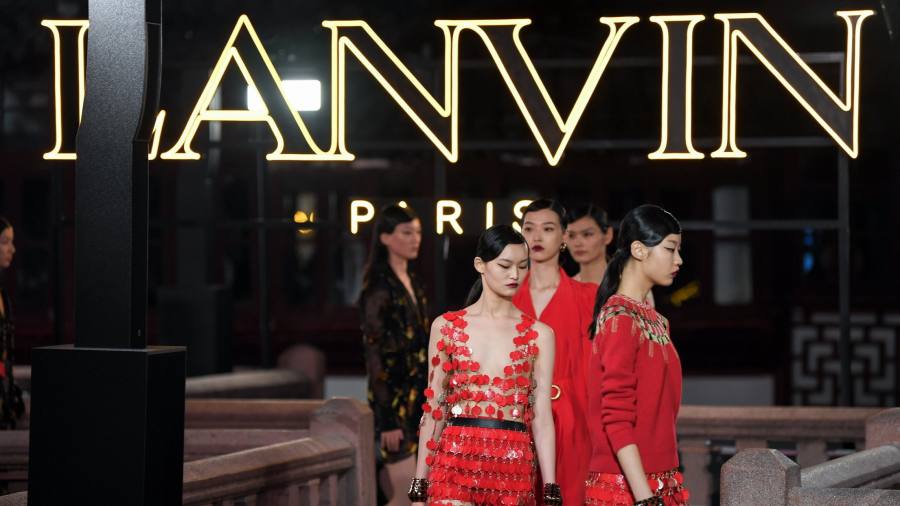
Shares in Lanvin soared 36 per cent on its market debut in New York on Thursday, with its owner Fosun hoping the high-profile listing will kick-start the luxury fashion group’s push into China.
Lanvin Group, owned by Chinese billionaire Guo Guangchang’s Fosun International, debuted with a valuation of $1bn on the New York Stock Exchange after floating via a special purpose acquisition company, a listed cash shell set up specifically to acquire private companies.
Guo, who bought a controlling stake in Lanvin in 2018, hopes the higher profile will help the brand — which is known for its cocktail dresses — compete with household names such as LVMH, Chanel, Hermès and Prada in China, one of the world’s biggest consumer markets.
Fosun hopes the brand’s revival will help pay down a $36bn debt pile it accrued after the conglomerate took advantage of the low interest rates of the past decade to push into tourism, football and insurance. In 2016, for example, it bought English football club Wolverhampton Wanderers.
Fosun has not yet been able to turn round the French fashion brand, which has lost market share to rivals, suffered falling profits and had a steady turnover of creative directors. Last year, Fosun’s fashion division adopted the Lanvin brand name as a prelude to a more full-throttled expansion in mainland China, where it touts itself as the only global luxury group based in the mainland.
The Lanvin Group includes Italian shoemaker Sergio Rossi and American knitwear company St. John, alongside the original Lanvin brand founded in 1889 by Jeanne Lanvin in Paris.
“The beauty of Lanvin Group is that we are small and quite nimble and quick to adapt to the macroenvironment,” chair and chief executive Joann Cheng said during an analyst presentation in November.
The listing was made possible by the merger of Lanvin Group with Primavera Capital Acquisition Corporation and raised $150mn, less than the $544mn it had hoped to achieve.
Existing shareholders of Lanvin Group are expected to hold 55 per cent of the listed group after closing. Fosun is under a one-year lock-up arrangement, which prevents it from selling shares until next December.
The group had initially hoped to achieve an enterprise value of $1.5bn but the valuation was lowered in October as Spacs fell out of fashion with investors and China continued with its hardline stance on Covid-19.
Lanvin will use the proceeds to expand geographically and potentially fuel future acquisitions. It has set itself the targets of being profitable by 2024 and tripling revenue to nearly €1bn by the end of 2025. In the first half of the year, Lanvin Group reported a 73 per cent year-on-year revenue increase to €202mn, driven by growth in Europe and North America.
That plan, however, depends in large part on success in China, where it expects a 400 per cent increase in sales to lift its share of group revenue from around 14 per cent to 28 per cent. Mainland China is forecast to become the world’s largest luxury market by 2030, according to consultancy Bain & Co.